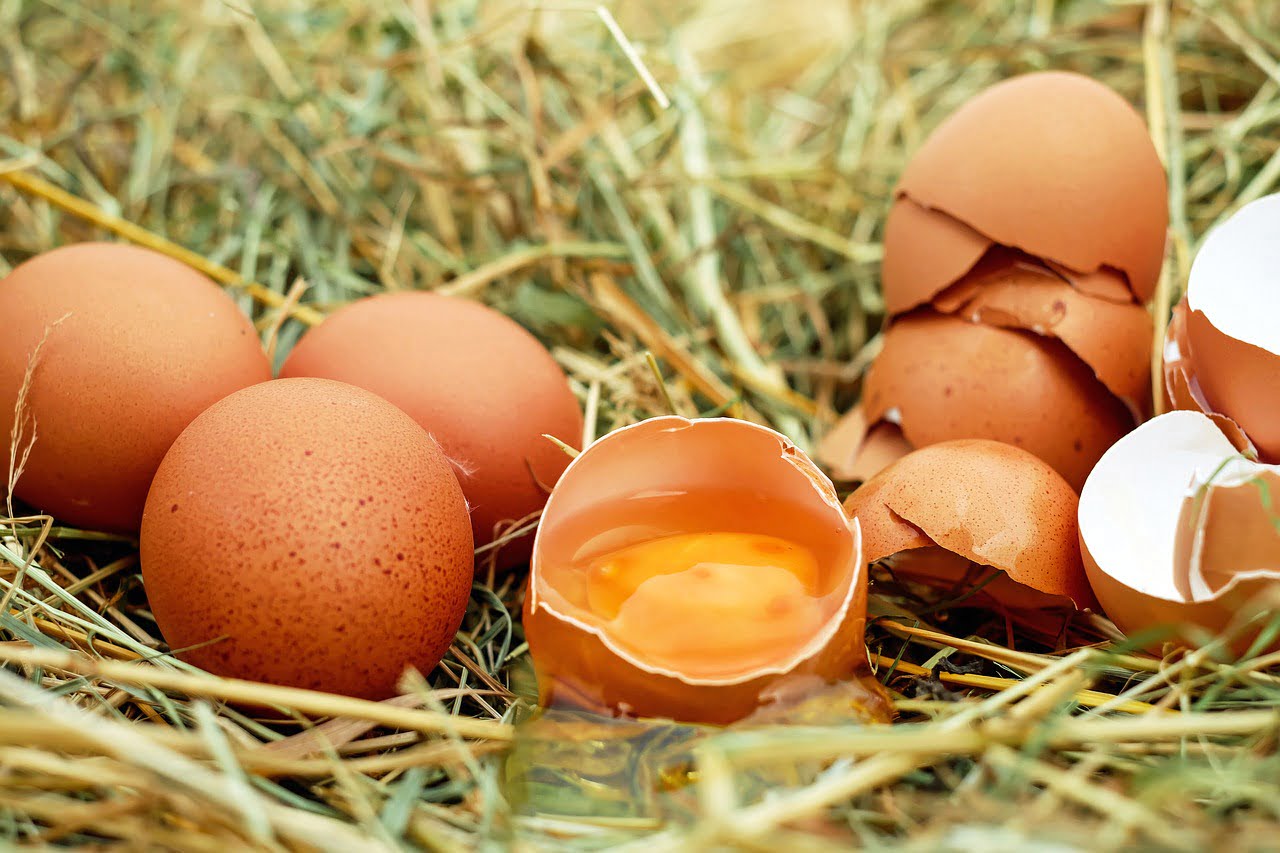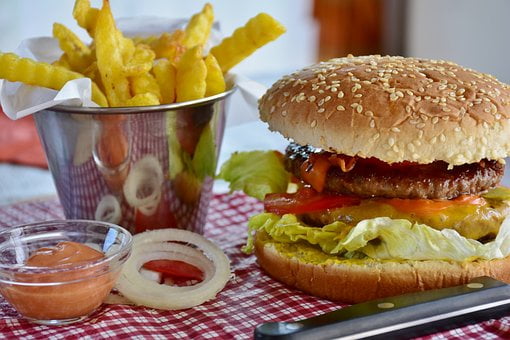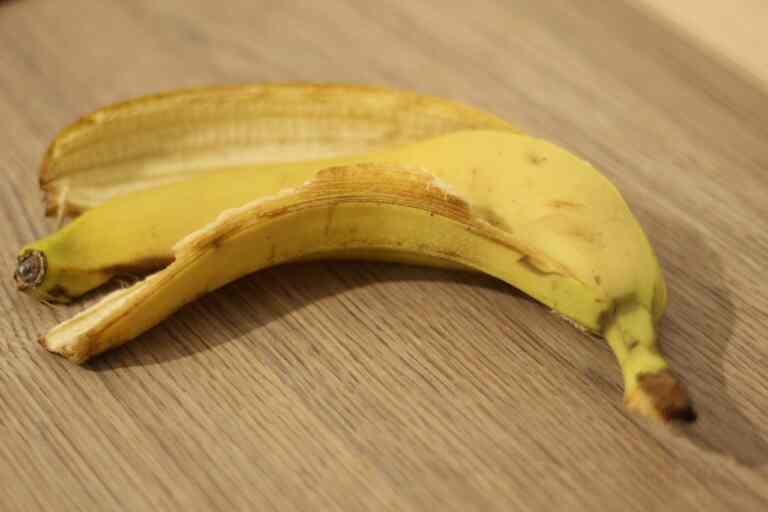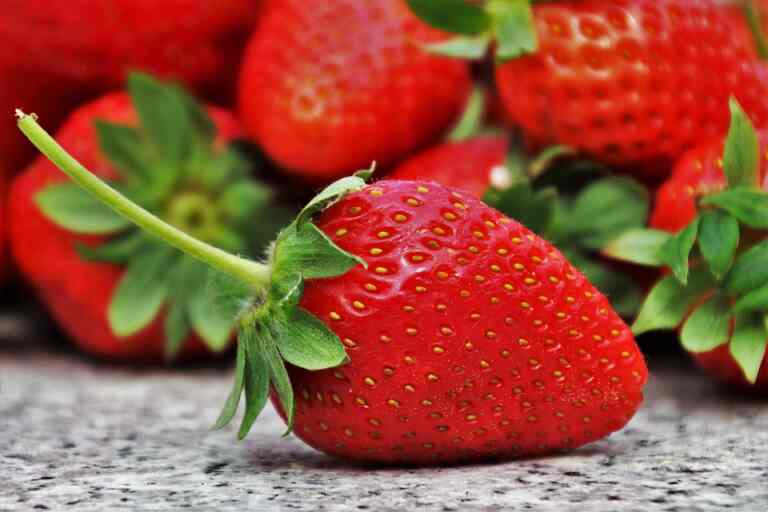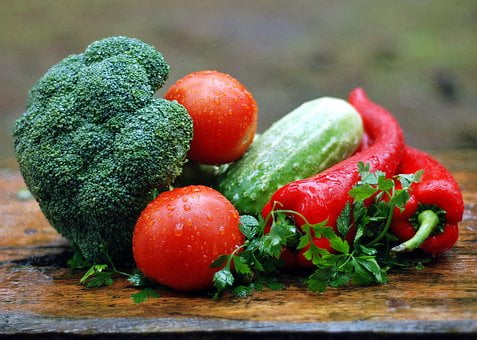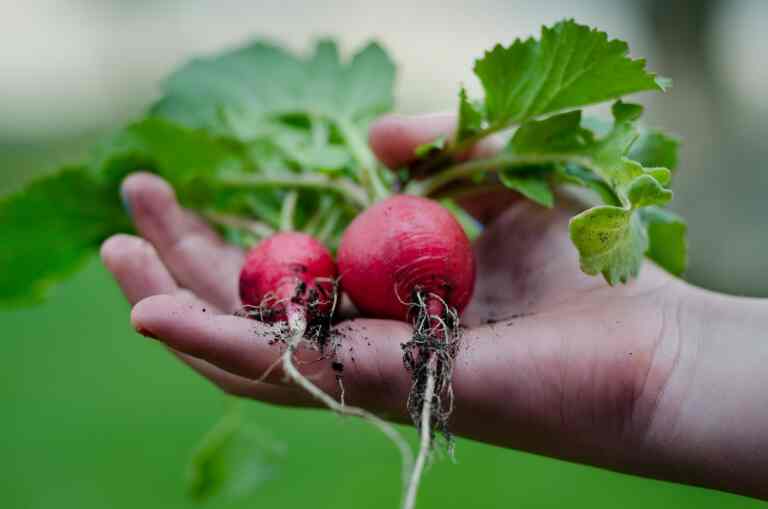Can we eat eggshells?
Can we eat eggshells? Eggshells, often considered a discarded byproduct of cooking or baking, have recently garnered attention as a potential source of nutrition and health benefits. While it may seem unconventional, some individuals explore the idea of consuming eggshells for their calcium content and other potential advantages.
In this section, we will delve into the concept of eating eggshells, examining their nutritional composition, potential health benefits, and safety considerations. Whether you’re curious about incorporating eggshells into your diet or simply interested in learning more about this unique practice, read on to discover the facts and findings surrounding this culinary exploration.
Nutritional Composition of Eggshells
Eggshells, though often overlooked, contain a surprising array of essential minerals and nutrients that can be beneficial when properly prepared and consumed. Here’s a closer look at the nutritional composition of eggshells:
- Calcium: Eggshells are predominantly composed of calcium carbonate, making them an excellent source of dietary calcium. Calcium is vital for maintaining strong bones and teeth, as well as for various bodily functions, including muscle contractions and nerve signaling.
- Protein: Eggshells contain small amounts of protein, which can contribute to your daily protein intake. However, the protein content in eggshells is relatively low compared to other dietary sources.
- Trace Minerals: In addition to calcium, eggshells contain trace amounts of other minerals like magnesium, strontium, and selenium. These minerals can have important roles in overall health and well-being.
- Collagen: Eggshells also contain collagen, a protein that supports skin, joint, and connective tissue health. Collagen supplements are popular for their potential benefits, and consuming eggshells may provide a natural source of this protein.
While eggshells offer these nutritional components, it’s important to note that their consumption should be approached with caution. To unlock their nutritional benefits and avoid potential health risks, proper preparation methods are necessary. In the following sections, we will explore the health benefits and risks associated with eating eggshells and provide guidance on safe consumption practices.
Health Benefits and Risks
Eating eggshells can have potential health benefits, but it also carries certain risks that need to be considered. Here’s an overview of both the benefits and risks associated with consuming eggshells:
Health Benefits:
- Calcium Source: Eggshells are an excellent source of calcium carbonate, which is a highly absorbable form of calcium. Consuming eggshells may help maintain strong bones and teeth, prevent osteoporosis, and support muscle and nerve function.
- Trace Minerals: Eggshells contain trace minerals like magnesium, strontium, and selenium, which are essential for various bodily functions. These minerals can contribute to overall health when included in your diet.
- Collagen Support: Collagen, a protein found in eggshells, is beneficial for skin, joint health, and connective tissues. Some people incorporate eggshells into their diet as a natural source of collagen.
Risks and Considerations:
- Contaminants: Eggshells can harbor contaminants such as bacteria (e.g., Salmonella) and pesticides. Thorough cleaning and proper cooking are essential to minimize the risk of foodborne illness.
- Preparation: Improper preparation of eggshells, such as insufficient cleaning or cooking, can lead to health risks. Consuming eggshells in their raw or unprocessed form is not advisable due to the potential for contamination.
- Digestibility: Eggshells are not easily digestible in their raw form. They should be finely ground to a powder or dissolved in an acidic medium (like lemon juice) to improve digestibility.
- Individual Allergies: Some individuals may be allergic to eggshells or experience digestive discomfort when consuming them. It’s essential to start with small quantities and monitor your body’s response.
- Supplement Alternatives: While eggshells offer some nutritional benefits, there are safer and more convenient sources of calcium, collagen, and other minerals available in the form of supplements or dietary choices.
In conclusion, while there are potential health benefits associated with consuming eggshells, it’s crucial to approach this practice with caution. Proper cleaning, cooking, and preparation methods are essential to mitigate the risks of contamination. Before incorporating eggshells into your diet, it’s advisable to consult with a healthcare professional, especially if you have any underlying health conditions or concerns.
How to Prepare and Consume Eggshells
If you’re interested in trying eggshells as a dietary source of calcium and other minerals, it’s essential to follow proper preparation and consumption methods to ensure safety and maximize nutritional benefits. Here’s a step-by-step guide on how to prepare and consume eggshells:
1. Gather Clean Eggshells:
- Collect eggshells from freshly cracked eggs. Ensure they are clean and free from any remnants of egg whites or yolks.
2. Clean the Eggshells:
- Rinse the eggshells thoroughly under running water to remove any remaining egg residue.
3. Boil the Eggshells:
- Place the clean eggshells in a pot of boiling water for 5-10 minutes. This process helps to kill any potential bacteria on the shells.
4. Dry the Eggshells:
- After boiling, remove the eggshells from the pot and allow them to air dry completely. This step is crucial to eliminate moisture, which can lead to bacterial growth during storage.
5. Crush or Grind the Eggshells:
- Once the eggshells are dry, you can crush them into a fine powder using a mortar and pestle or grind them in a clean coffee grinder. The powdered form is easier to incorporate into your diet.
6. Store Properly:
- Transfer the crushed or powdered eggshells to an airtight container and store them in a cool, dry place. Proper storage helps maintain their freshness and prevents moisture absorption.
7. Incorporate into Your Diet:
- You can add the powdered eggshells to various foods and beverages, including:
- Smoothies: Blend a teaspoon of eggshell powder into your favorite smoothie for added calcium.
- Baking: Incorporate eggshell powder into baked goods like bread, muffins, or cookies.
- Culinary Dishes: Sprinkle a small amount of eggshell powder into soups, stews, or sauces.
- Supplements: Some people encapsulate eggshell powder for convenient consumption as a dietary supplement.
8. Monitor Your Intake:
- Start with a small amount of eggshell powder (e.g., 1/2 teaspoon) and gradually increase it if desired. Monitor how your body responds, especially if you have any digestive sensitivities.
9. Be Consistent:
- If you choose to incorporate eggshells into your diet, do so consistently to maximize potential health benefits.
Remember that eggshells should not be consumed in their raw form, as they can be difficult to digest and may carry a risk of contamination. Proper cleaning, cooking, and preparation are crucial steps in ensuring their safety for consumption. If you have any doubts or concerns, it’s advisable to consult with a healthcare professional before adding eggshells to your diet.
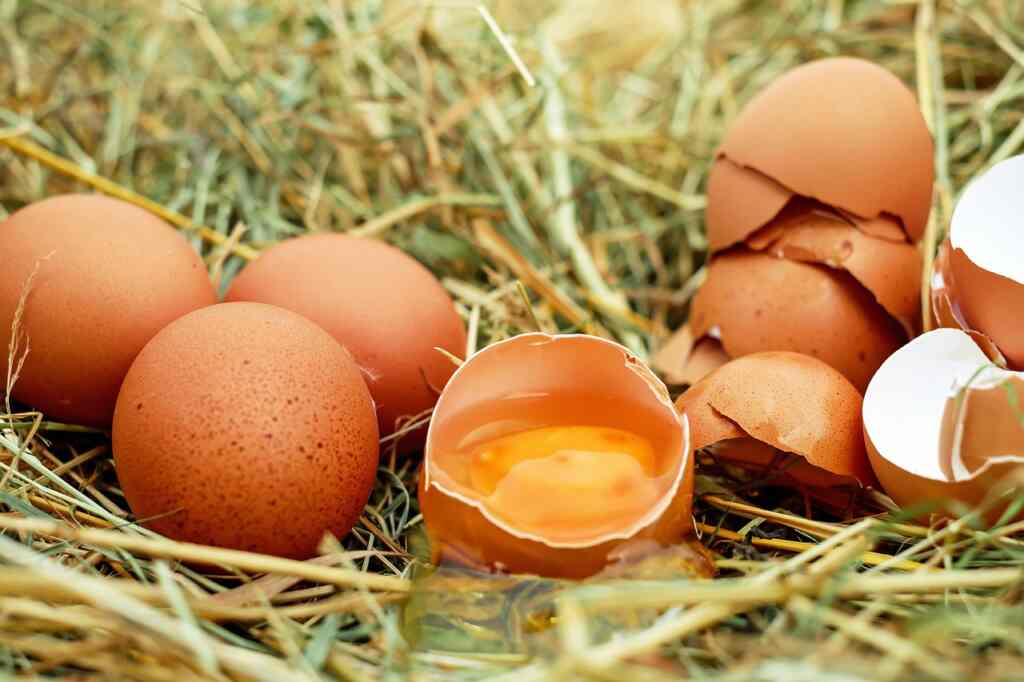
Alternative Uses for Eggshells
Eggshells have a range of alternative uses beyond dietary consumption. Here are some creative and practical ways to make use of eggshells:
- Gardening: Eggshells can benefit your garden in several ways:
- Fertilizer: Crushed eggshells can be added to your garden soil as a natural calcium supplement, promoting healthy plant growth.
- Pest Deterrent: Scatter crushed eggshells around the base of plants to deter slugs, snails, and other garden pests. The sharp edges of the shells deter crawling insects.
- Seed Starters: Eggshells can be used as biodegradable seed starters. Fill half of an eggshell with potting soil and plant a seed. Once the seedlings are ready for transplant, you can plant the entire eggshell into the garden.
- Household Cleaning:
- Scouring Agent: Crushed eggshells make an effective and gentle abrasive for scrubbing pots, pans, and surfaces, removing stubborn stains without scratching.
- Drain Cleaner: Ground eggshells can be used to help clean and deodorize sink drains. When combined with vinegar, they create a natural foaming cleaner.
- Crafts and Decor:
- Candle Holders: Hollowed-out eggshells can be used as miniature candle holders for decorative purposes.
- Mosaics: Crushed eggshells can be incorporated into mosaic art projects, adding texture and shine.
- Pet Health:
- Calcium Supplement: Crushed and finely ground eggshells can be added to your pet’s food as a natural calcium supplement, especially for animals like chickens, reptiles, and birds.
- DIY Chalk: Eggshells can be used to make homemade chalk. Mix finely ground eggshells with flour and water to create a chalk paste that can be molded into shapes and left to dry.
- Skin Care: Eggshells can be used in skincare products and routines:
- Exfoliant: Finely ground eggshells can be added to facial scrubs for gentle exfoliation.
- Face Mask: Eggshell membranes contain collagen, which can be used in homemade face masks for skin rejuvenation.
- Educational Projects: Eggshells are great for science experiments and educational projects. They can be used to demonstrate concepts such as osmosis and the effects of acids on calcium carbonate.
- Composting: Eggshells are a valuable addition to your compost pile. They help balance the pH levels and add calcium to the compost, which benefits your garden when the compost is used as fertilizer.
- Bird Feed: Crushed eggshells can be scattered in your yard to provide a calcium-rich supplement for wild birds.
These alternative uses for eggshells showcase their versatility and ability to contribute to various aspects of daily life. Before using eggshells for any purpose, it’s essential to clean and sterilize them properly to ensure their safety and effectiveness in each application.
Frequently Asked Questions about Eating Eggshells
- Is it safe to eat eggshells?Eating eggshells can be safe if they are properly cleaned, boiled, and finely ground into a powder. However, consuming eggshells in their raw form is not recommended due to potential contamination risks.
- Why would someone want to eat eggshells?Some people consider eating eggshells for their calcium content and other potential health benefits, such as providing trace minerals and collagen.
- How can I prepare eggshells for consumption?To prepare eggshells for consumption, follow these steps: clean the shells, boil them for sterilization, dry them thoroughly, crush or grind them into a fine powder, and store them in an airtight container.
- How can I incorporate eggshells into my diet?You can add powdered egg shells to foods like smoothies, baked goods, soups, or sauces. Start with a small amount and gradually increase if desired.
- Are there any risks associated with eating eggshells?Yes, there are risks, including potential contamination if not cleaned and cooked properly. Consuming large quantities of eggshells may also lead to mineral imbalances.
- Can I give eggshells to my pets for calcium?Crushed and finely ground eggshells can be added to your pet’s food as a natural calcium supplement, especially for animals like chickens, reptiles, and birds.
- Can I use eggshells for gardening?Yes, eggshells are beneficial in gardening as they provide calcium to the soil and can deter pests when scattered around plants.
- Can eggshells be used for cleaning?Crushed eggshells can be used as a natural abrasive for cleaning pots, pans, and surfaces, as well as a drain cleaner when combined with vinegar.
- Can I use eggshells in crafts or DIY projects?Eggshells can be used for various craft projects, such as candle holders, mosaics, and homemade chalk.
- Are there any allergies associated with eggshells?Some individuals may have allergies to eggshells or experience digestive discomfort when consuming them. Start with small quantities to assess your body’s response.
- Can I use eggshells in skincare routines?Finely ground eggshells can be used in skincare products as an exfoliant or in face masks due to their collagen content.
Remember to exercise caution and follow proper preparation and usage guidelines when working with eggshells for any purpose. If you have specific health concerns or questions, it’s advisable to consult with a healthcare professional or veterinarian (for pet use) before incorporating eggshells into your routine.
Conclusion: Is Eating Eggshells Safe and Recommended?
Eating eggshells is a practice that comes with both potential benefits and risks, and whether it is safe and recommended depends on several factors.
Safety Considerations:
- Proper Preparation: The safety of consuming eggshells hinges on proper preparation. Eggshells should be cleaned, boiled, and finely ground into a powder to reduce the risk of contamination.
- Avoid Raw Consumption: Raw eggshells should not be eaten due to potential bacterial contamination and the difficulty in digesting them in their raw state.
- Allergies and Sensitivities: Some individuals may be allergic to eggshells or experience digestive discomfort when consuming them. It’s crucial to start with small quantities and monitor your body’s response.
Recommended Use:
- Dietary Supplements: If you are interested in incorporating eggshells into your diet, it’s advisable to do so in moderation and as a supplement rather than a primary calcium source.
- Gardening: Crushed eggshells can be safely used in gardening to provide calcium to the soil and deter pests.
- Household and Craft Uses: Eggshells have numerous non-food applications, such as cleaning, crafting, and pet care.
In summary, eating eggshells can be safe and potentially beneficial when approached with caution and proper preparation. However, it is not a necessary or recommended dietary practice for everyone. If you are considering incorporating eggshells into your diet or using them for other purposes, consult with a healthcare professional or gardening expert to ensure that it aligns with your specific needs and health considerations. Additionally, always prioritize safety in handling and preparing eggshells for any use.
This article is reviewed by Russel, before publishing. If you have any doubt, you can contact us or consult with your nearby doctor. Remember, in medical matters, there is no same advice, cure, and medicine for all.

